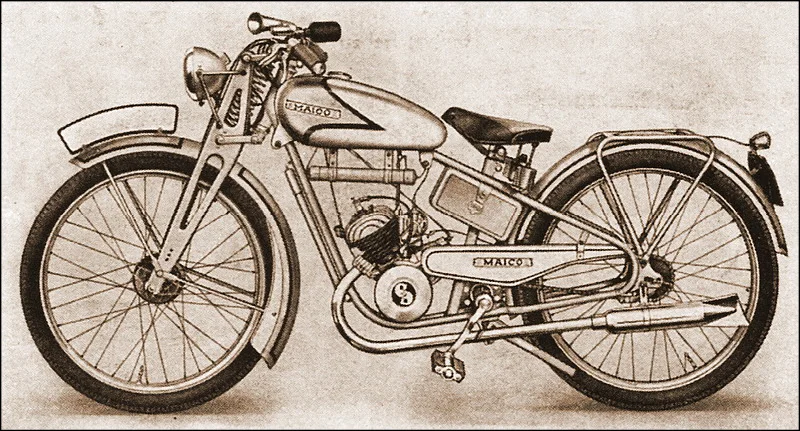1938 Maico F100 Piccolo Derby

Review of 1938 Maico F100 Piccolo Derby
The Maico F100 Piccolo Derby 1938 is a remarkable motorcycle that holds a special place in the hearts of motorcycle enthusiasts and collectors. With its distinctive design and advanced engineering for its time, the F100 Piccolo Derby stands out as a true classic. The bike's lightweight frame, powerful engine, and agile handling make it a joy to ride, whether on the open road or the racetrack. Its historical significance and rarity add to its value, making it a sought-after treasure for those passionate about vintage motorcycles. Overall, the Maico F100 Piccolo Derby 1938 encapsulates the essence of a bygone era in motorcycle history, showcasing the craftsmanship and innovation of its time. Its timeless appeal and unique features make it a prized possession for collectors looking to own a piece of motorcycle heritage. The F100 Piccolo Derby's blend of style, performance, and historical significance makes it a valuable addition to any motorcycle enthusiast's collection, embodying the spirit of adventure and freedom that defines the world of motorcycling.
Advantages
- The Maico F100 Piccolo Derby 1938 motorcycle featured a lightweight design, making it easy to maneuver and handle on various terrains.
- It was equipped with a powerful engine for its time, providing riders with ample speed and acceleration for thrilling rides.
- The motorcycle had a durable construction, ensuring longevity and reliability for riders who put it through its paces.
- The Maico F100 Piccolo Derby 1938 had a stylish and eye-catching design that made it stand out from other motorcycles of its era.
- It offered a comfortable riding experience, with a well-designed seat and ergonomic features that reduced rider fatigue during long journeys.
Disadvantages
- Limited top speed compared to modern motorcycles due to its outdated technology.
- Lack of modern safety features such as ABS brakes and traction control.
- Difficulty in finding replacement parts due to the rarity of the motorcycle.
- Uncomfortable riding position and lack of ergonomic design for long rides.
- High maintenance costs and frequent need for repairs due to its age and limited availability of mechanics familiar with its technology.
Alternatives
- DKW RT 125: A popular German motorcycle known for its reliability and lightweight design, the DKW RT 125 was a competitor to the Maico F100 Piccolo Derby in the 1930s. It featured a two-stroke engine and a simple yet effective frame.
- NSU Quick 50: Another German motorcycle from the same era, the NSU Quick 50 was known for its nimble handling and compact size. It was a popular choice for urban commuting and short-distance rides.
- Ariel Red Hunter: A British classic, the Ariel Red Hunter was a stylish and powerful motorcycle that competed with the Maico F100 Piccolo Derby in the pre-WWII era. With its distinctive red color and robust engine, it was a favorite among motorcycle enthusiasts.
- Moto Guzzi Airone 250: An Italian beauty, the Moto Guzzi Airone 250 was a sleek and elegant motorcycle that offered a smooth ride and impressive performance. It was a formidable competitor to the Maico F100 Piccolo Derby in terms of both style and function.
- Harley-Davidson WLD: A legendary American motorcycle, the Harley-Davidson WLD was a heavyweight contender in the 1930s motorcycle market. Known for its distinctive V-twin engine and iconic design, the WLD was a symbol of American craftsmanship and power.

Comments & Discussion